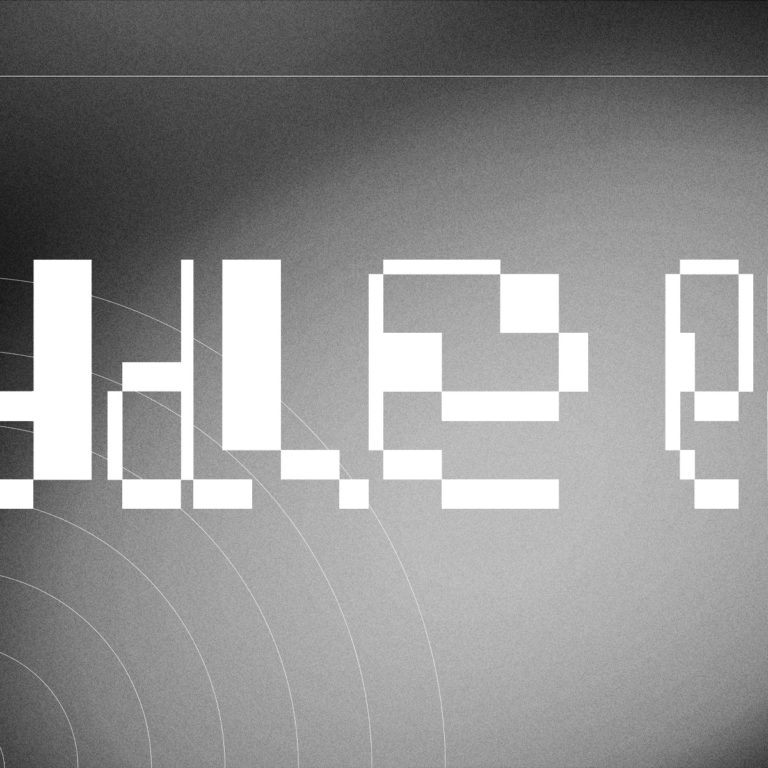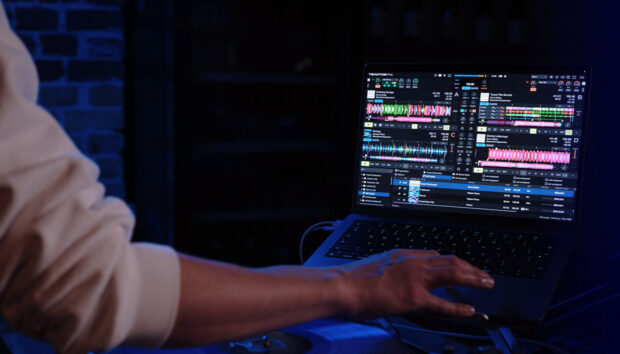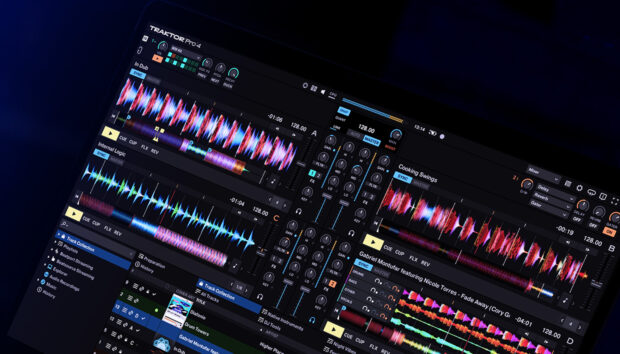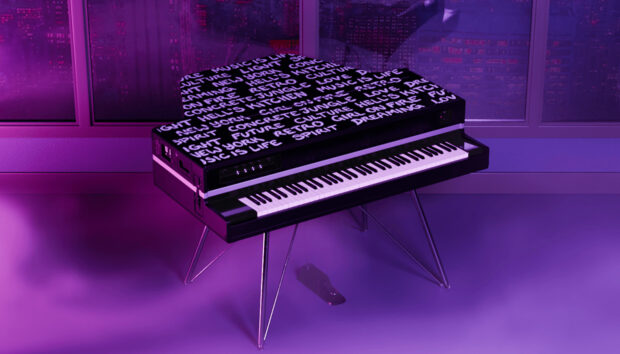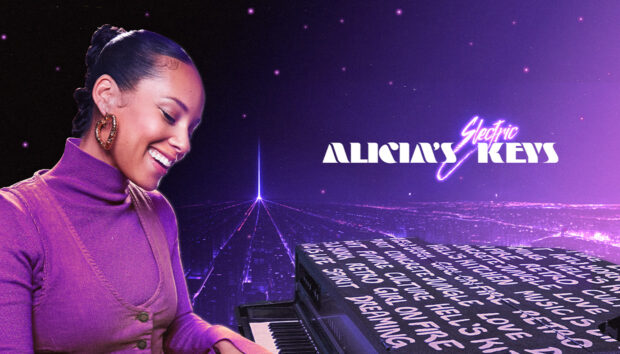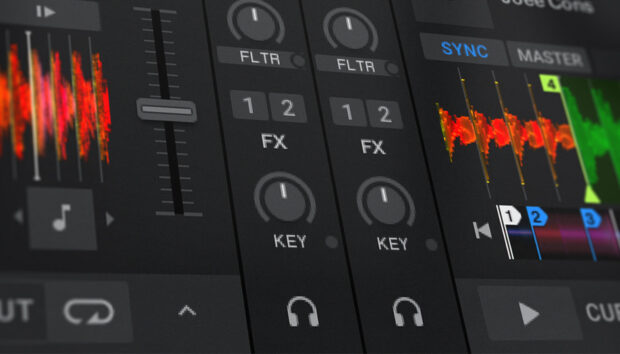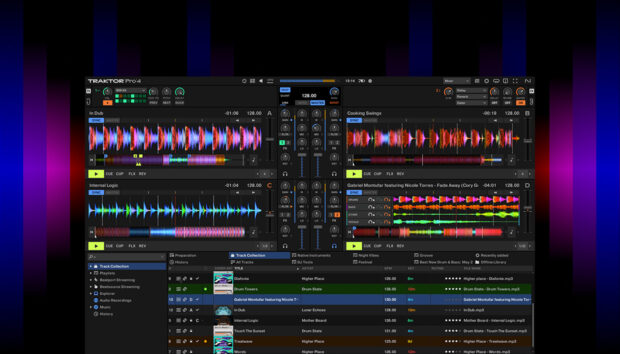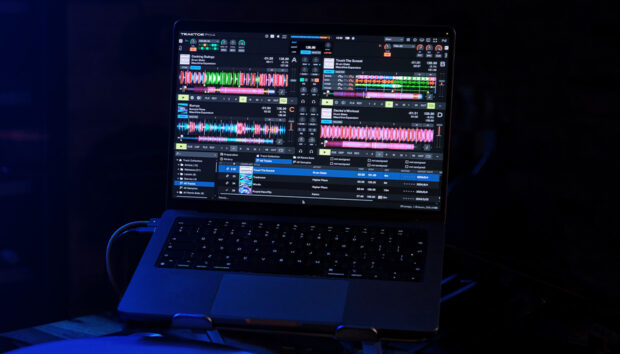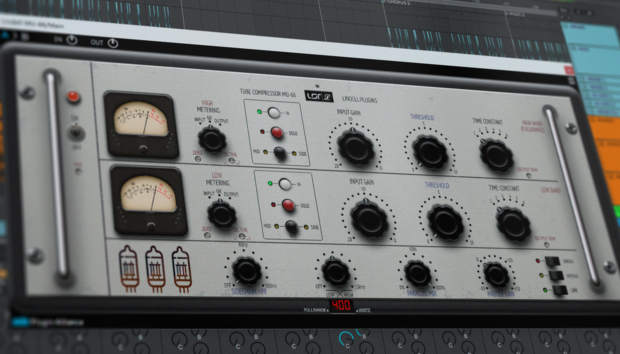While the Arab world might not be your first thought when considering popular rave spots on a global level, the region has ever so subtly become host to an abundance of hidden gems when it comes to DJs and dancefloors. Mushrooming out of the Middle East, dance music and rave culture proliferate within pop-up venues – from the Great Pyramids of Giza to gigs in the middle of the Red Sea or festivals in the forest of Lebanon and a blue-skied Boiler Room in the middle of Ramallah, Palestine. The socio-economic conditions required to build sustainable venues are precarious at best in many Arab countries, thus pushing dance music and rave culture towards a more nomadic approach. In this way, accessibility and portability become key features for DJs, and this is perhaps why so many look to Native Instruments and specifically TRAKTOR software and controllers.
Steadily gaining popularity around the region since around 2007, TRAKTOR has become a leading DJ software for many, from amateur to A-list. Native Instrument’s machines like the X1/Z1 combination or the S2 and S4 controllers in particular, are often favored for easy mobility in pop-up parties and bedroom studios. Ahead of TRAKTOR’s 20th anniversary, we linked up with some of the region’s most exciting DJs to peek through the window of lesser-known landscapes, where dance music and rave culture have become a musical birthplace for many artists.
Makimakkuk – Palestine
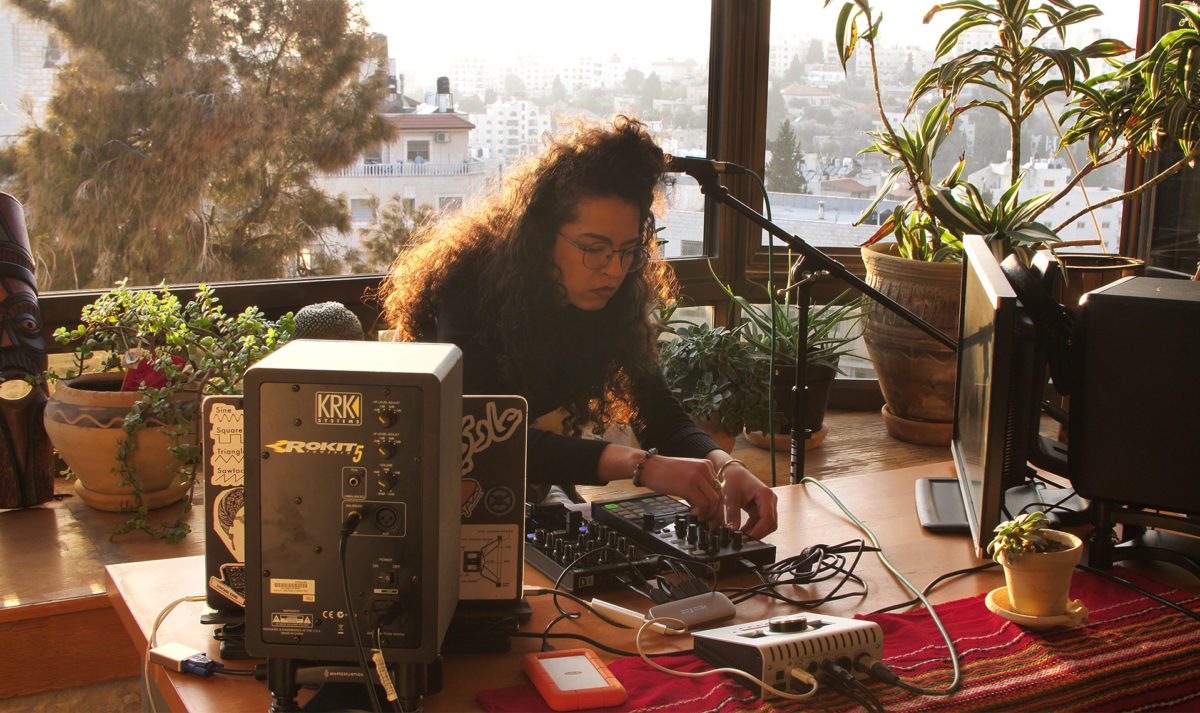
Working under the moniker Makimakkuk, Majdal Nijim is a Ramallah-based musical artist who doesn’t easily fit into one category of production and performance. Instead, she inhabits many musical forms be it a vocalist, MC, producer, DJ, songwriter, or poet. Around the same time when TRAKTOR was entering the Middle Eastern market, Makimakkuk was planting the seeds to what would eventually blossom into a dynamic musical career. In 2018 Makimakkuk was featured in the Ramallah iteration of Boiler Room, along with Mukta-feen, Muqata’a, Sama’, Jazar Crew, Julmud, Dakn, Oddz, and Al Nather (ft. Shabjdeed). When listening to Makimakkuk’s DJ sets online, dub reigns supreme, but so too is her unique ability to seamlessly travel between my seemingly disparate genres, be it footwork, ambient electronics, Afrobeats, hip hop, and at times, her own vocal interventions. Over the past decade, Makimakkuk has released a stunning body of productions including but not limited to solo works such as “Tartaqa” a bass-ladened hip hop track, and more recently “Jazirat AlKanz”, in addition to her collaborative works with Sun Glitters, in the EP titled, “Fada/Spaces”, among others.
Can you tell us how you got into dance music?
I was always making mixtapes when cassettes were still a thing. It was really about selection, not only DJing in particular because we didn’t yet have the technology for mixing.In 2007, I started attending underground hip hop and electronic music parties the likes of Ramallah Underground. In the early 2000s, a few different foundational parties were happening in parallel, but the different scenes didn’t know each other yet – or at least not in the same way they do now.
I play different genres from Dub to hip hop to footwork and others but Dub was one of the genres that’s been there from the start, and the genre to stick with me until today when DJing.
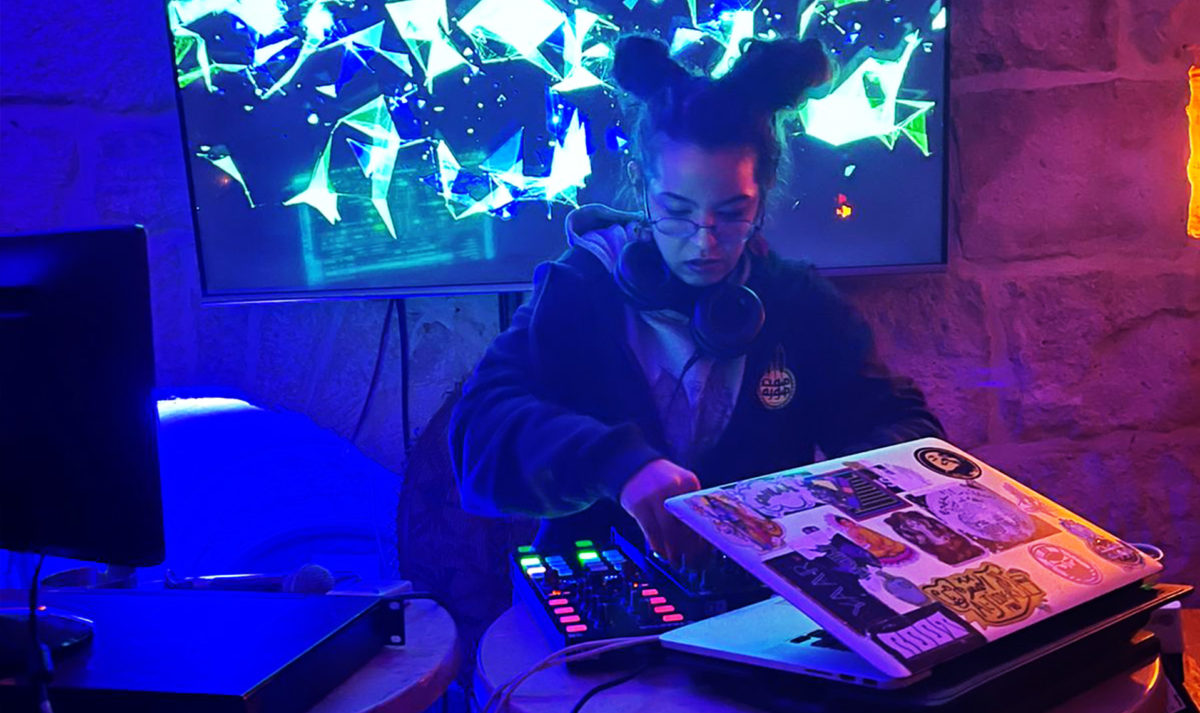
Why Dub?
I love bass – it even proves to be a problem in my productions – because when I hand a track I’ve produced to an engineer to do the mixing – they always tell me the low frequencies are a lot to handle. High frequencies make me anxious – that’s why I really love dub, that and ska and reggae have always spoken to my soul – they feed my soul at the same time they also generate nice vibrations in the body. I often go to tracks that give me that “dubby” feeling – even the vocals or other instruments that have that kind of low-end frequency you find in dub basslines.
When did you get into TRAKTOR and why?
We were all sharing equipment when I started, so the first equipment I used for DJing was the X1/Z1 in 2015 and they’ve stuck with me all these years – they were the most accessible ones, and what my friends learned on. Eventually, I got my own and continue to use them until today as they are both affordable and portable. I’ve used other brands of machines of course, but I always find there’s something that can be done much more easily in my current setup – that and it works well for my live sets when I’m singing or rapping as well and gives me the mobility I need.
Can you tell us about one of your recent online sets, let’s say the “3al Balkoneh” set?
This set was made for “Hiya Sessions” – it was an online festival of female producers and singers, musicians. This was a very prepped set because I had a limited time, and really needed to have the tracks set to play exactly – a lot of the tracks were from not so well known artists. I used the parts where there were no vocals to intervene – because I had in mind a narrative I wanted to go through. When I did this set, it had been a very long time since I had played in a party – since the pandemic, I’ve retreated into the studio, and haven’t been djing parties. So it was the right moment for me to come out. I wrote things I wanted to say, info about the tracks. But I also made some vocal interventions using unreleased lyrics I had written.
Makimakkuk is currently working on an EP, which she is meant to release later this year. To follow her on Insta click here, and here’s the link to her SoudCloud portfolio.
Safi – Egypt
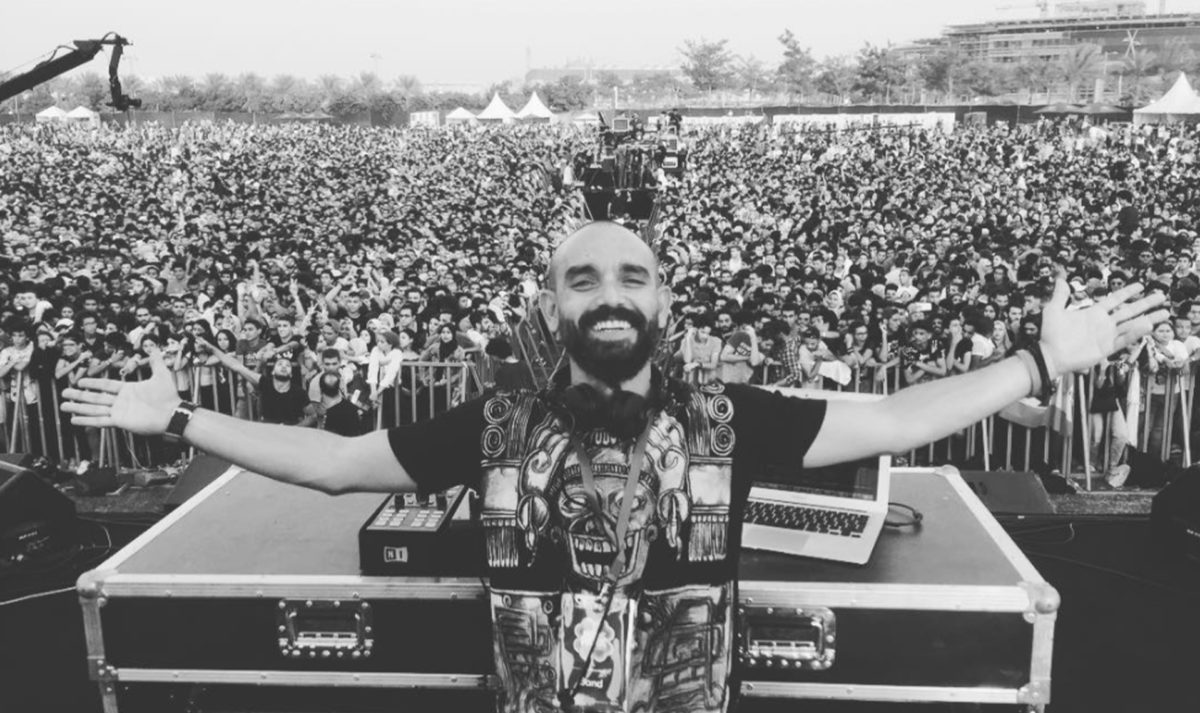
Originally booked as a percussionist in a popular band in the early 2000s, called the Digital Monkies, Safi later went on to become a resident rock DJ at the iconic Cairo Jazz Club. In the time since, Safi has become one of the leading radio DJs for Nile FM in Egypt, while co-founding the Red Sea based Duf Music Studio in addition to producing his own work. Along with being known for his massive library of music and agility as a DJ, it is also Safi’s outpouring of contemporary Arabic remixes into dancefloor hits that continue to make him a household name in Egypt. His portfolio garners hundreds of thousands of views as heard in remixes and fusions such as Boschoco vs Ahker Zapheer’s “Awal Lahen”, and his edit of Abdullah Miniawy’s “Torn Apart” and more recently, Jadal’s “Hawi”.
Can you tell us a brief history of Egypt’s dance music scene from about the 2000’s until now?
It was around the late 2000s that the dance music scene started making major headway. There were massive raves at the pyramids – we had Judge Jewels, Godskitchen, Tiesto – no matter how big the names were at the time, the scene wasn’t yet understood by authorities or music syndicates or even the party-goers itself. The scene took its time to mature, like any club or rave scene in the world. It was always affected by the fact that we never had permanent club venues for dance music – Cairo never had a Fabric or a Berghain or Sisyphos – that’s still the case until today.
But when it comes to the resort towns, we have to give credit to Pasha in Sharm El Sheik and the role it played in the early 2000s – it was even ranked in the top 50 clubs worldwide at a certain point. They had giant names every single weekend so the more affluent side of the Egyptian rave culture started traveling to Sharm for the weekends to go party because David Morales is performing or because Carl Cox is behind the decks. Later you had key players like Nacelle, Back to Basics, Ganzoury, and loads of DJ competitions that helped cultivate the scene.
What kind of gigs do you perform in nowadays?
In the beginning, it felt incredible and still does to play to a 5,000-10,000 person arena situation but as you grow and develop, where I’m at now – my favorite place on the planet to play is Gig on a Rig, these amazing boats in the middle of the Red Sea with an intimate group of family and friends. I’m generally not a fan of big festivals anymore – I’ve spent a long time chasing small and medium size festivals where if you don’t get to meet everyone, at least you made eye contact with everyone. That’s how your tribe family grows, and that method has done me very well in the past few years – it’s changed.
Egypt has so many different, inspiring settings that would definitely get you to dish out the set of your life – whether you’re in Siwa, in the desert, Luxury or Aswan, the grandiosity this country has to offer on a nature level, is monumental can definitely inspire. Setting goes a very long way to affecting how you can play. I think like anyone, once you’re taking out of your comfort zone, you can really let loose and afford to experiment with sound.
When did you start with TRAKTOR and why?
In the beginning, it was really TRAKTOR that enabled me to more easily mix – especially within rock sets that you can’t always match easily through BPM. I started out on CDJs but they were very weak at the time, so I quickly moved on to TRAKTOR software, and my first S2 controller – they had a better looping system, and were able to quantize. It was probably my most enjoyable time DJing, traveling around with that S2 controller. I never enjoyed working with CDJs from the beginning – even in the top clubs you’d always find some wonky knob or a button that didn’t work – I wanted gear that was more mobile and lighter, at the same time unifying my setup.
You are known to play through many different styles, what kind of sounds are you playing these days?
At the moment, I’m really into playing organic electronic sounds – sounds and frequencies that invoke the spirit. The idea is to give people musical journeys, which has now become an amalgamation of the styles I like to play – that sort of ethnic, organic groove that’s everything from house beats, to funk to old-school Afrobeats – and Arabic, stuff that relates back to my culture – so I’m really enjoying that sound at the moment. Ethnic, organic grooves on the electronic side.
To check out Safi’s portfolio and new releases, visit his SoundCloud page, or follow him on Instagram.
Gael Mousa – Lebanon
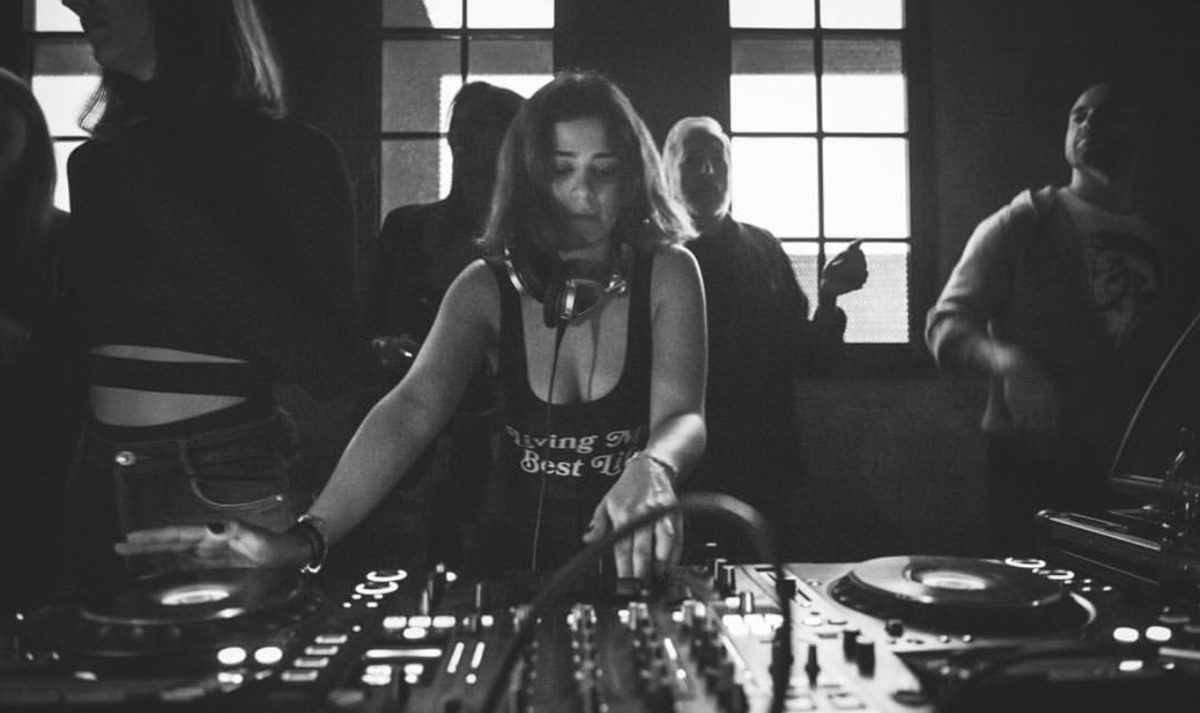
Considered one of the first female DJs in Zahle – a mountain town in the Bekaa region of Lebanon – Gael Moussa’s sound draws from drum & bass, jungle, breaks, ghetto tech and house. While Gael’s beginnings were in a small town bar known as the Peach Puff, she later made her foray into the Beirut scene, playing at some of the most iconic club spaces in the city including Soul Kitchen, B 018, Garten, and the Grand Factory. In the time since, she has begun producing her own tracks, while co-founding the Berlin/Beirut based Arab House collective and label – they are meant to release a debut compilation album with various artists this year, which will include her debut track, “Re7la (Journey).”
How did you get into dance music and DJing?
I come from a small rural town in Lebanon called Zahle – they used to have a pub called Peach Puff – it was directed by Eli Atala who is a very well-known DJ from Lebanon. I was 15 years old back then – I remember the first time going to the pub and seeing this guy playing music, I asked if I could observe him. He was very friendly and welcoming and quickly saw something in me, and soon after started giving me lessons in everything from music theory to technical lessons.
The first gig I ever performed was Peach Puff in Zahle – it was really fascinating for me because I was the first female DJ in Zahle, yet people were very supportive – people loved it, they were dancing and screaming, which prompted me to pursue DJing more. Following that, my first ever gig in front of a huge number of people was at B 018 in Beirut, I was only 17 years old.
Can you tell us a bit about your tech setup?
I use a combination of tools and software to create my sets – but since I don’t own CDJs when it comes to my online, pre-recorded sound portfolio and podcasts, I mainly use TRAKTOR to record and mix. For me, TRAKTOR offers a professional quality platform that allows me to record and mix without a controller as it allows you to be very precise even when working just with the laptop. Even without the machine, I can see all the channels and precisely control the low/mid/high through the percentages.
Beirut used to have one of the most vibrant nightlife scenes in the region prior to the horrific blast in 2020 which left most clubs and many lives in the rubble. In the aftermath of the explosion, it seemed like the dance music scene moved outside of the city, can you tell us about this shift?
Regarding the sea-side festivals in Batroun and everything that happened after the explosion in Beirut in 2020 – most of the clubs closed as a result of the damage. Also with the pandemic there were the government restrictions – that’s when Batroun took more spotlight, most places outside of the city – Zahle as well – Jbeil too – it was mostly small parties, in outdoor spaces like the beach or in the forest. Also, Yahshoush – it’s in the mountains, and it has awesome forests and lakes – so people have really taken advantage of these locations, which has helped keep the music scene going.
Keep an eye on Gael’s gigs via Instagram, and follow her online sets at SoundCloud.
NarKBeat – Lebanon/Saudi Arabia
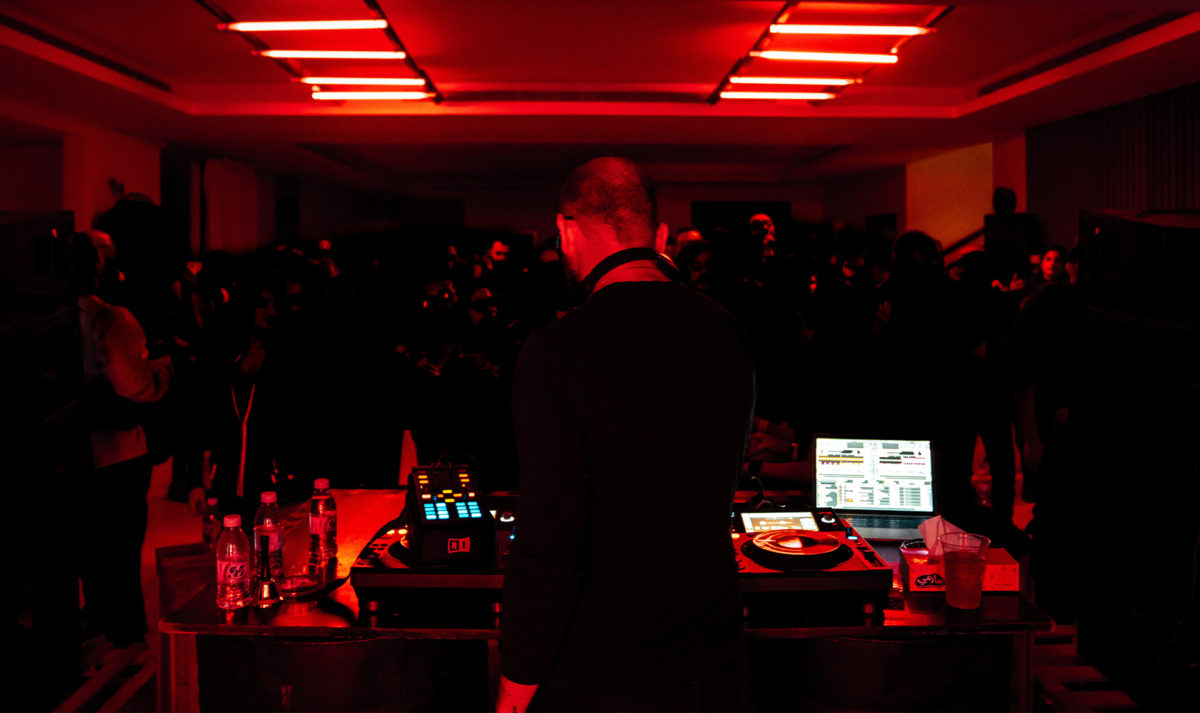
Not without his own journey, Lebanese-born, Saudi-based DJ and events producer, NarKBeat couldn’t be more excited about the progress within the dance music scene from Riyadh to Beirut. And while he has been living in Saudi for nearly 27 years, NarKBeat entered the dance music scene in Beirut, performing everywhere from B 018 to the Basement before becoming a foundational DJ and event organizer in the Saudi scene. Since then, NarkBeat released eleven EPs including the most recent, “Oma”, and is currently producing a wide portfolio of dance music events in Saudi, including Narratives, Glitch, and Haze Sound. NarKBeat was also a featured performer in last year’s MDL Beast music and arts festival in Riyadh, an event that he calls forever “game-changing” to the Saudi dance music landscape.
How and when did the dance music scene in Saudi get started?
I got my start in dance music when vacationing back in Lebanon in the early 2000s – but in Saudi at the time, it was nearly non-existent. With exception to a few secret house parties over the years, with very small numbers in attendance – but the music scene was more about hip hop at the time, when it comes to youth culture at least. Things started to pick up more in 2008-2010, but it was challenging, scary, and rarely over 30 people parties. But in 2017 everything changed. In fact, it started exactly in September 2017 with the national day – it was like an announcement that Saudi is going to change. The new generation of DJs started popping up then too. And now today you have more than 50 DJs in Saudi, sure at different levels, but there are more every day – thanks to Pioneer and TRAKTOR for creating controllers.
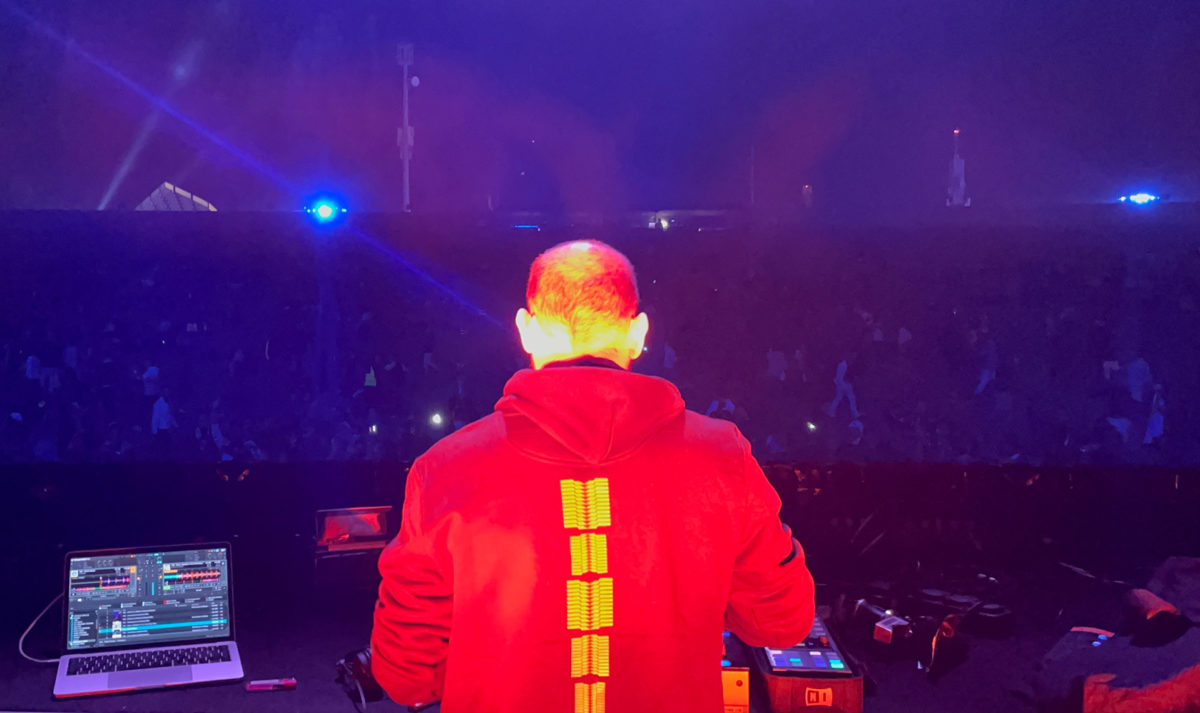
What is your audio setup?
I started with turntables, then went to CDJs, and later very deliberately stuck with TRAKTOR – it just makes my life easier, rather than lugging around some bulky machine. I use 2 X1s so I can control the 4 decks, also you can use 4 effects when you have a second X1 – you can use the effects panel of C and D, but also A and B. At the time when I was first getting to know TRAKTOR, I watched a lot of videos of Richie Hawtin, how he played and used TRAKTOR, Dubfire, Chris – I learned a lot of the technicalities of how to use TRAKTOR from them.
In 2019, Saudi kicked off the first iteration of MDL Beast, a four-day multi-genre music art, and culture festival in Riyadh, with a mega dance and electronic music focus. Can you tell us a bit about the past two editions?
They invited all the local talents were invited to play – everyone went but no one was sure what would happen. It was something unbelievable for us, especially for a generation who lives almost entirely underground until then – after MDL BEast, even the private scene changed, more event brands popped up, and the crowds got bigger. Finally, it was starting to happen. We had the second edition in 2021 and with it the XP Music Conference with the focus of building a community and infrastructure around dance and electronic music. There were workshops, discussions, and networking opportunities. Covid restrictions were intense at the time, so MDL Beast focused more on bringing in local and regional talent, and even with the travel difficulties, there were 700,000 people in attendance, most of which were Saudi Arabians rather than foreigners. It takes place in a piece of land 40-minutes outside of Riyadh built exclusively for the festival – and for the past two years, it received the Guinness Book World Record for “largest temporary stage”.
Check out NarkBeat’s EPs on his SoundCloud page, or follow him on Instagram here.








